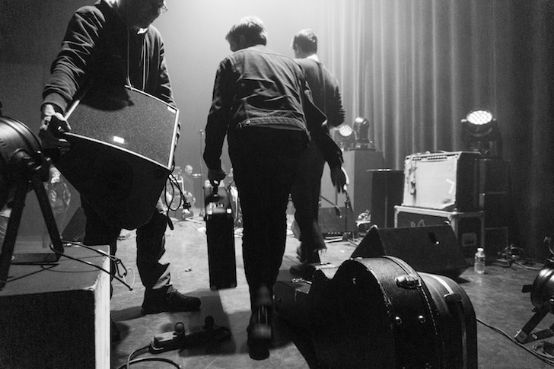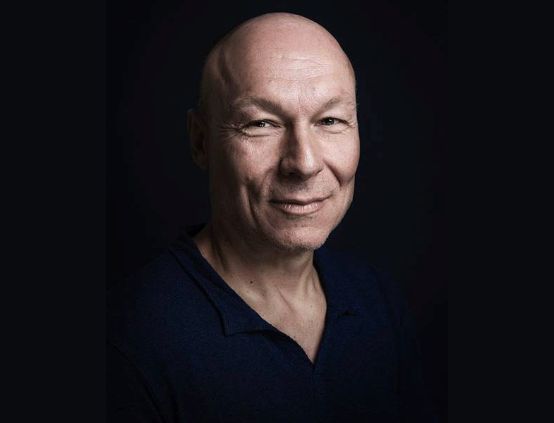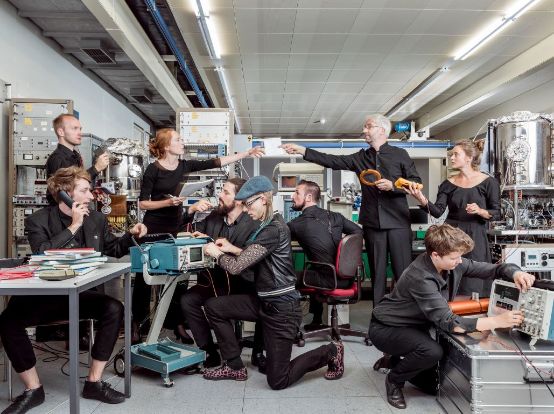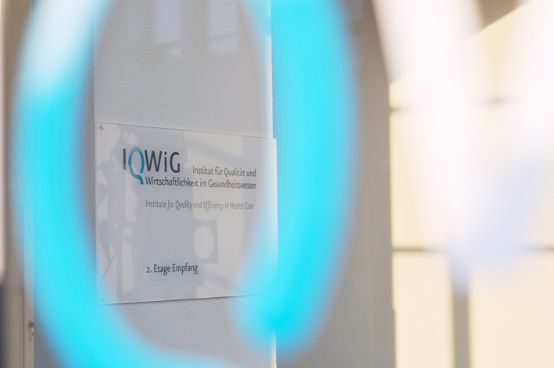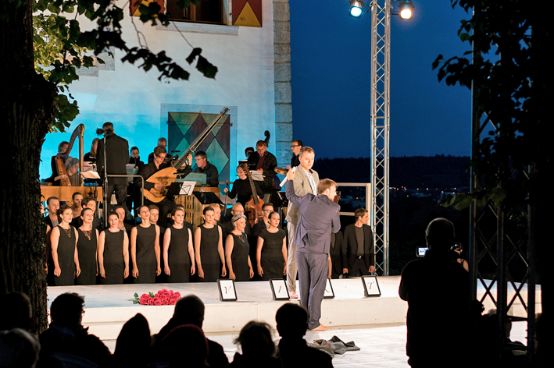At a young age, he wrote a novel with the title "The Dandy" want to write: The main character takes a cab and drives to the opera. The book was supposed to be about this short yet extended journey - and probably also a little about himself. Regardless of whether this was invented or whether a fragment of the novel will actually be found in his estate: Rolf Urs Ringger naturally knew what kind of fodder he was giving journalists with such an anecdote. He mischievously imagined how the image of the dandy Ringger came about and was delighted, because that's what he was: the dandy among Swiss composers, undisguisedly vain, but also playing with this vanity with relish. When Adrian Marthaler composed his orchestral work Breaks and Takes visualized for television, Ringger himself played a Delius-like, melancholy composer by a swimming pool.
"I love flirtation. It gives my production a light and playful moment. And it also goes down very well with the audience. And I enjoy it." He once said in conversation. "The moment of narcissism, now understood in a non-judgemental way, is very tangible in my work." I liked him for this self-irony, which came naturally to him. He brought a very unique and striking color to the Zurich music scene, which tended towards modesty; he was sophisticated, sophisticated, urban, even if he always spent the summer on Capri, where he created some sensual soundscapes. The composer himself contributed a great deal to this image.
But Ringger was also a Zurich native. He was born here on April 6, 1935, grew up here, lived and worked here, an artist of words and sound. He attended the seminary in Küsnacht and wrote his dissertation on Webern's piano songs with Kurt von Fischer at the Zurich Musicology Seminar. As a rur. he belonged for decades to the critical staff of the Neue Zürcher ZeitungHe provided pointed and elegant, sometimes deliberately careless texts, but also portrayed those composers early on who later received widespread attention, such as Edgard Varèse or Charles Ives, Erik Satie and Othmar Schoeck. Alongside the great figures, there are the loners, and he liked to think of the nostalgics, among whom he probably counted himself. In publications such as the collection of essays From Debussy to Henze he has bundled these portraits together.
Ringger received private composition lessons from Hermann Haller at a very early age. At the Darmstadt Summer Course in 1956, he studied with Theodor W. Adorno and Ernst Krenek, and shortly afterwards for six months with Hans Werner Henze in Rome. They were aesthetic antipodes, as Henze had already withdrawn from the avant-garde scene. Although Ringger later said with a smugly expectant smile that he actually got on better with Adorno than with Henze, he followed Adorno's departure from strictly serial techniques and his turn towards a sensual tonal language. You can already hear this in his titles: ... vagheggi il mar e l'arenoso lido ... for orchestra (1978), Souvenirs de Capri for soprano, horn and string sextet (1976-77), Ode to the southern light for choir and orchestra (1981) or Addio! for strings and tubular bells. With The narcissist (1980), Icarus (1991), and Ippòlito (1995), he created three pieces of ballet music. However, he apparently never attempted to approach the great musico-dramatic forms.
Ringger was one of the first to make use of neo-tonal elements again in the 1970s, in Henze's wake, but certainly early on in the trend. I noted this in a review at the time, which was suitably biting. Naturally, he reacted with appropriate offense, despite all his self-irony. And yet a few years later he came back to it with relish and proudly proclaimed that I had called him the first neo-tonalist in this country. The postmodern turn had proved him right.
His music liked to play with quotations (from Debussy, for example), indulged in impressionistic colors or highly romantic gestures, but remained transparent and light. Of course, I value him most as an urban flâneur. Not where he somewhat childishly combined newspaper cuttings into a collage (Chari-Vari-Etudes, Miscellaneous) for chamber choir, but in his musical promenades. In the Manhattan Song Book (2002) for soprano, three speaking voices and five instruments, he is out and about in New York, observing, notating, commenting in eleven songs, cheeky, light-hearted, even there in flirtatious self-reflection. When a lady, not very kindly referred to as a "crazy witch", asks him if he is the "famous composer", he replies briefly: "No, it's my cousin."
Now he has died. "Light!" is written at the top of the obituary, with the following sentences underneath: "He loved the Mediterranean sun, music and youth. He thanks all those who did him good in life and promoted his music." Capri will miss him. His Notizario caprese (2004) ends with the words "(very calmly, almost without pathos) Se non c'è Amore, tutto è sprecato. (very soberly) Where there is no love, everything is in vain. A tomb saying in Capri; about 2020."
